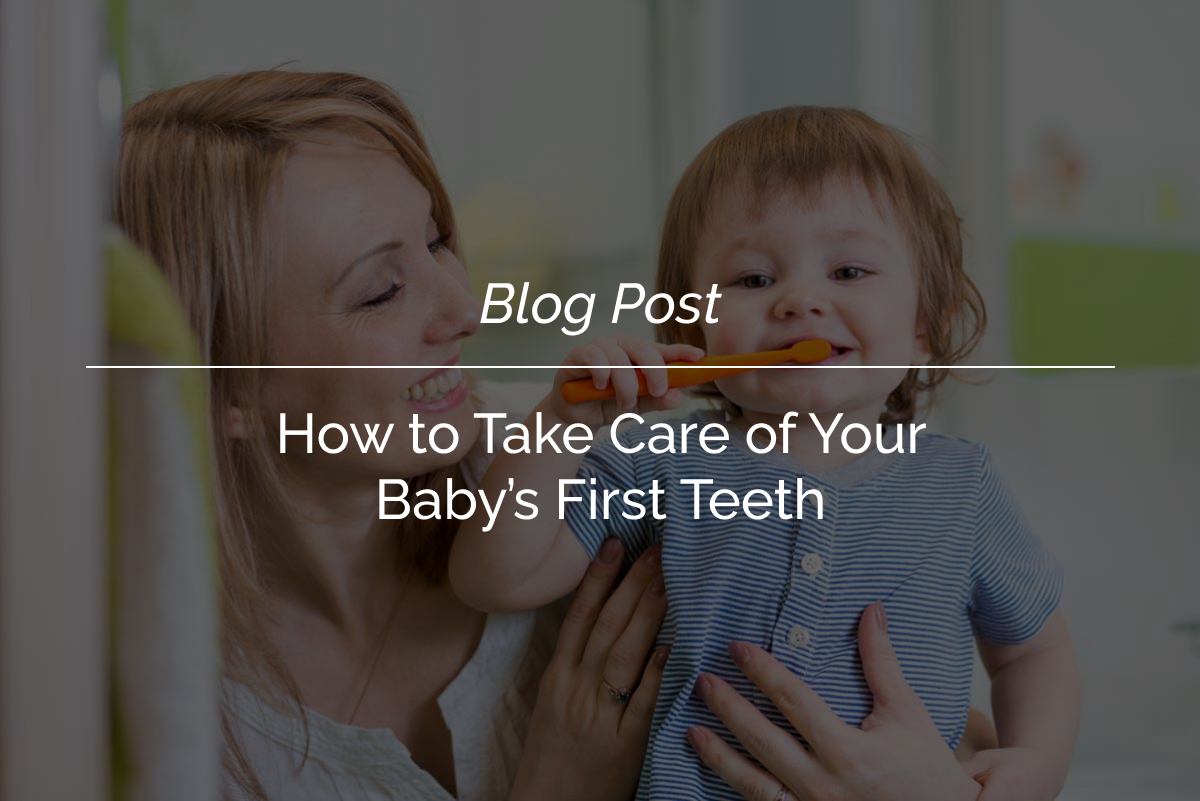Baby teeth develop while babies are still in the womb. Once born, your baby will have a full set of 20 baby teeth hidden in their gums. Caring for baby’s first teeth begins pretty much straight away, before you can even see them. Baby teeth might be temporary, but they play an essential role in child health and development. Baby’s first teeth allow them to eat nutritious foods and learn to talk.
Baby teeth also hold space for adult teeth to come through, all the way into the tween years. When baby teeth decay, it can be painful and uncomfortable for children. It can also increase the risk of more serious dental conditions that can continue into adulthood. With good dental hygiene practices and a healthy diet, you can keep baby tooth decay at bay.
When Does Teething Start
For most babies, teeth begin to appear between 6 and 10 months. In some children, teeth appear as early as 3 months. In others, they don’t arrive until around 12 months. Children get teeth at different times. Meanwhile, a very small number of children are born with 1 to 2 teeth.
When babies teeth grow, they can arrive in any order, although the central bottom teeth are often first. All 20 baby teeth will usually arrive by the time your child is 3 years old. The 32 adult teeth replace the baby teeth between the ages of 6 and 20 years.
Caring for Baby’s First Teeth
Proper dental care begins before your baby’s first tooth appears. Each day, run a clean, damp washcloth or an infant toothbrush over their gums to clear away harmful bacteria.
When babies teeth begin to grow, follow these tips:
- Brush their teeth with an infant toothbrush. Use only water on the toothbrush until your baby is 18 months old, unless a dentist tells you otherwise.
- When your baby’s teeth touch, you can begin flossing between them.
- When your baby is about age 2, start teaching them to spit while brushing.
- Don’t give water to swish and spit because she could swallow toothpaste.
Teeth cleaning alone isn’t a guarantee against tooth decay. Diet and the way you feed your baby are also important. Babies aged 0 to 6 months need only breastmilk or formula.
By your child’s second birthday, they should have their first visit to the dentist. This will help reduce the risk of tooth decay and support positive oral health habits. The dentist can let you know how often your child should have check-ups, based on their individual needs.
Avoid Putting Your Baby to Sleep with a Bottle
Avoid putting your baby to sleep with a bottle. Sugars from juice, formula, or milk that stay on a baby’s teeth for hours can eat away at the enamel (the layer of the tooth that protects against tooth decay). This can lead to “bottle mouth” or “baby bottle tooth decay”. When this happens, the front teeth can get discoloured, pocked, and pitted. Cavities might form and, in severe cases, the decayed teeth might need to be pulled.
Breastfed and formula-fed babies older than 6 months can also have small amounts of water. Avoid giving your baby sugary drinks. Once you introduce solids, also avoid giving your baby foods high in sugar. When kids are 6 months old, they can switch from a bottle to a sippy cup (with a straw or hard spout). This helps prevent liquid from pooling around a child’s teeth.
Book a Consultation Today at King Street Dental
Typically, children should see the dentist at least once every 12 months. Taking your children to the dentist regularly helps create lifelong habits that support great oral health. At King Street Dental, our family friendly dentists can make your child’s dental appointment as comfortable and stress-free as possible.
Book an appointment today by calling 03 9841 8033 or contact us online.
